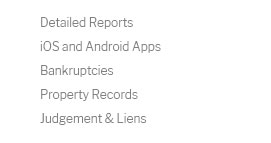 |
 |
|---|
|
|
|---|
 |
 |
 |
 |
|---|---|---|---|
 |
 |
 |
|
 |
|||
 |
 |
 |
|
 |
|||
 |
 |
 |
|
 |
|||

local arrest records explained for everyday residentsWhat they areLocal arrest records show that someone was taken into custody by city or county agencies. They are not convictions. Maintained by the sheriff, police, or court clerk, they fall under public records laws, with limits for sealed or expunged cases. Why people searchPeople search them for due diligence-landlords verifying applicants, journalists confirming incidents, or individuals checking for mistakes. Remember the presumption of innocence: an arrest indicates suspicion, not guilt, and some matters involve diversion, dismissal, or charges never filed. How to access and useYou can access records via a county portal, in-person requests, or a state repository. Expect small fees or ID checks. Search carefully across jurisdictions, confirm spellings and dates of birth, and compare against court dockets to see dispositions, which clarify whether the case advanced beyond an arrest.
Use results responsibly. For employment or housing, consult the FCRA and local law; some checks require consent and notice. Add context, respect privacy, and avoid decisions based solely on headlines. For example, a protest-related arrest may be dismissed or sealed later.
|
|---|